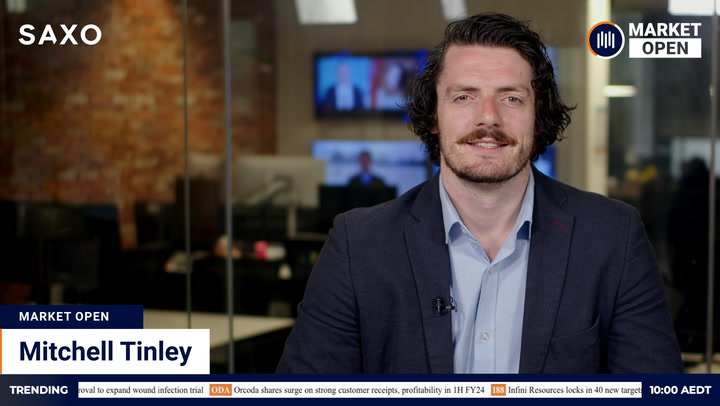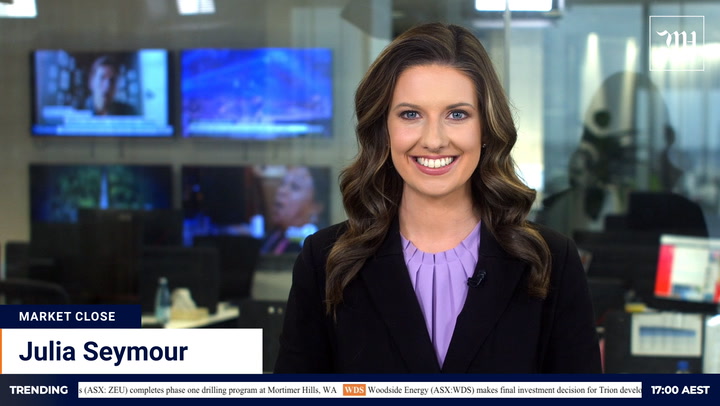The share market was poised to open at its weakest level since 2020 following heavy falls in the US as dire economic data sharpened fears of a recession.
ASX futures plunged 135 points or 2.09 per cent as Wall Street’s main indices shed up to 4.1 per cent.
The dollar firmed above 70 US cents. Iron ore and most industrial metals declined. Oil and gold rallied.
The S&P/ASX 200 has fallen for five straight days. The Australian benchmark looked set to open this morning below 6500 for the first time since November 2020.
Wall Street
US stocks erased Wednesday night’s bounce as fleeting optimism about tackling inflation gave way to worries that aggressive rate increases will stall the economy. Weak economic data underlined the danger. Rate hikes in Britain and Switzerland highlighted the global scale of the inflation challenge.
The Dow Jones Industrial Average skidded 741 points or 2.42 per cent, closing below 30,000 for the first time since January 2021. The S&P 500 fell 123 points or 3.25 per cent to its sixth loss in seven sessions. The Nasdaq Composite dived 453 points or 4.08 per cent.
Stocks bounced on Wednesday when the Federal Reserve raised its benchmark rate by 75 basis points and indicated it could raise by a similar amount next month. The mood soured as several banks said the odds on a recession were rising.
“Higher interest rates mean a cooler U.S. economy, and therefore a higher chance of recession in the next couple of years. Market selloffs have historically been deeper and longer when associated with a recession, helping explain the downside volatility of the last few days,” Ross Mayfield, investment strategy analyst at Baird Private Wealth Management, said.
Reports last night showed the US economy was already losing steam. Construction on new homes declined by 14.4 per cent last month, much more than expected. Factory activity in the greater Philadelphia region contracted for the first time since May 2020.
The Swiss National Bank surprised markets by hiking its benchmark rate by 50 basis points. The Bank of England raised by 25 basis points.
The Dow finished the session just short of joining the S&P 500 and Nasdaq Composite in bear market territory. The blue-chip average has fallen 19 per cent from its January all-time high. The S&P 500 was down 24 per cent and the Nasdaq 34 per cent from their peaks.
Growth and consumer stocks led the selling as investors dumped assets seen as most at risk from recession. Leading house-building companies fell at least 6 per cent. Tesla dropped 8.54 per cent.
Travel stocks sank on concerns Americans will have less disposable income to spend on holidays. Cruise lines suffered double-digit declines. The S&P 500 airlines index dived 7.18 per cent.
Australian outlook
The Australian market looks set for its worst back-to-back weekly declines since the initial pandemic sell-off of 2020. The S&P/ASX 200 has fallen 648 points or almost 9 per cent in nine sessions. The odds on extending that retreat beyond 10 per cent this session seem high.
There is nothing on the domestic economic calendar today that might change the outlook for the session. US equity futures will have an impact, but have proven an increasingly unreliable guide as volatility has risen. Australian buyers were encouraged by positive S&P 500 futures yesterday morning, only to see the market roll over by mid-afternoon.
Defensive sectors continued to outperform in the US, but only in the sense they fell less. Consumer staples retreated 0.66 per cent, healthcare 1.52 per cent and utilities 1.97 per cent.
The real punishment was meted out to energy -5.58 per cent, consumer discretionary -4.76 per cent and tech -4.11 per cent. Basic materials slumped 3.65 per cent. Financials shed 2.57 per cent.
Precious metal miners offered a haven as the greenback retreated. The NYSE Arca Gold Bugs Index improved 1.67 per cent.
The dollar continued to reclaim some of last week’s losses, firming 0.44 per cent to 70.48 US cents.
Commodities
Oil swung higher after the White House announced fresh sanctions on Iran to pressure Teheran into honouring a nuclear deal. Brent crude settled US$1.30 or 1.1 per cent ahead at US$119.81 a barrel.
Gold attracted haven buying as the US dollar retreated and soft economic data undermined risk assets. Metal for August delivery settled US$30.30 or 1.7 per cent higher at US$1,849.90 an ounce.
Iron ore declined following reports of Chinese steelmakers reducing production as margins turned negative. The spot price for ore landed in China eased 43 US cents or 0.3 per cent to US$135.04 a tonne.
“Seasonal weather, holidays and other factors have led to poor short-term market demand and serious market pessimism. Some steel mills have reduced production to ease the pressure on inventory and profits,” reported The Hellenic Shipping News.
Industrial metals were hit by fears of renewed Covid lockdowns in China as mass testing continued.
JPMorgan said Chinese demand remained “fragile so far with continued mass testing and more-targeted recent restrictions in Shanghai and Beijing stirring fears of a backslide on the COVID front.”
Benchmark copper on the London Metal Exchange fell 1.6 per cent to US$9,079.75 a tonne. Aluminium declined 3.4 per cent, nickel 2.3 per cent, zinc 1.8 per cent and tin 1.3 per cent. Lead rose 1.3 per cent.
BHP‘s US-traded depositary receipts sank 2.81 per cent after the miner’s UK stock lost 4.03 per cent. Rio Tinto shed 2.13 per cent in the US and 3.39 per cent in the UK.





